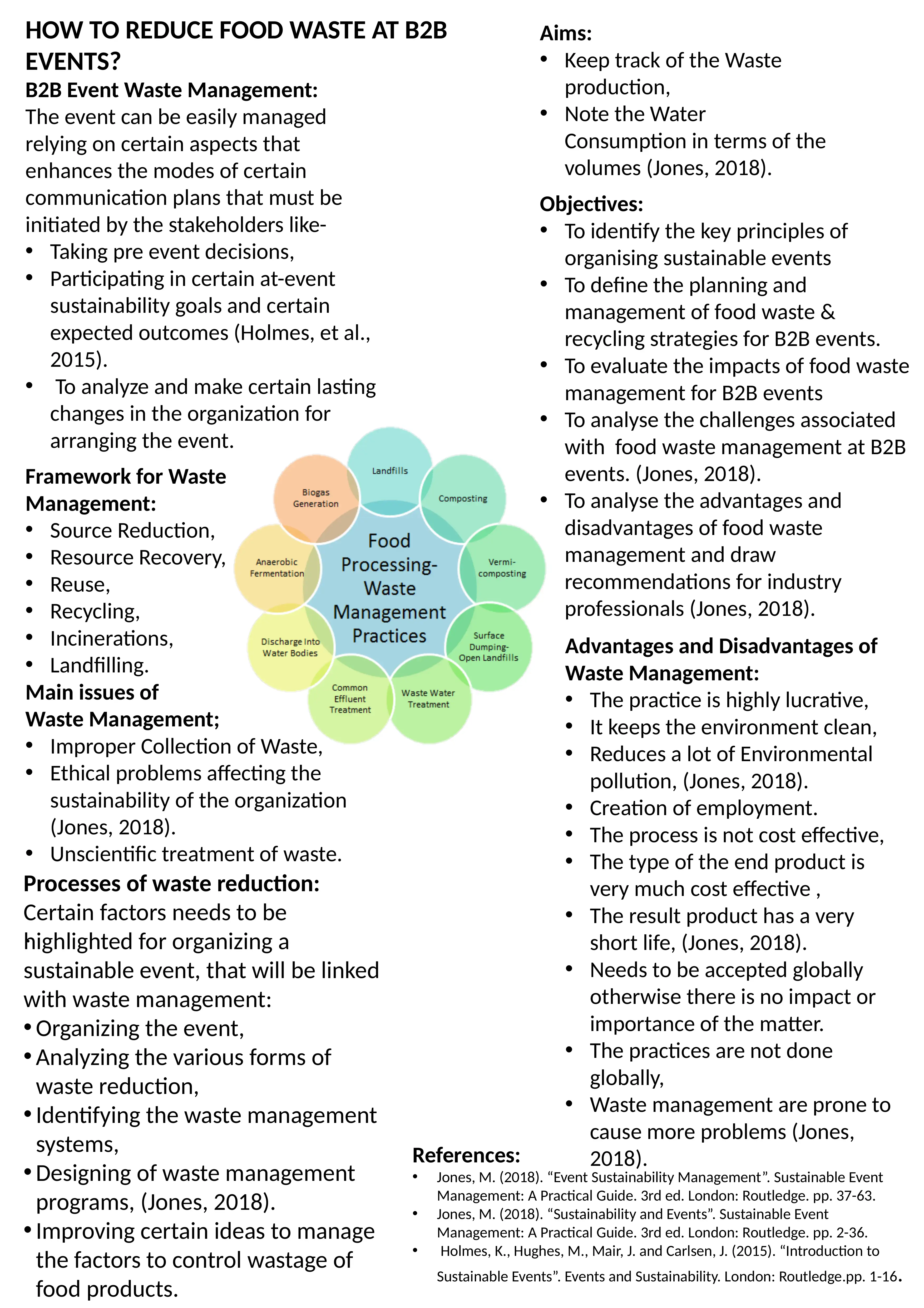Detailed Analysis of B2B Event Waste Management Strategies
VerifiedAdded on 2022/08/23
|1
|511
|25
Report
AI Summary
This report analyzes B2B event waste management, focusing on strategies for waste reduction and sustainable practices. It addresses the importance of pre-event planning, stakeholder involvement, and the implementation of waste management systems, including source reduction, resource recovery, and recycling. The report highlights the challenges associated with food waste, ethical considerations, and the need for effective waste collection and treatment. It also explores the advantages and disadvantages of waste management, such as cost-effectiveness, environmental benefits, and global implementation issues. The objectives include identifying key principles of sustainable events, defining food waste management strategies, evaluating the impact of waste management, and providing recommendations for industry professionals. The report references key literature on event sustainability and waste management, emphasizing the need for comprehensive and integrated approaches to minimize environmental impact and promote responsible event planning.







![[object Object]](/_next/static/media/star-bottom.7253800d.svg)